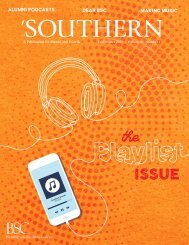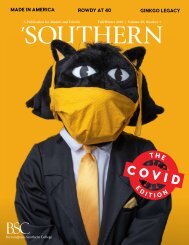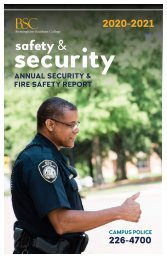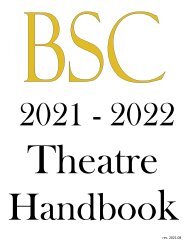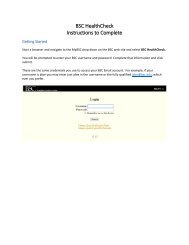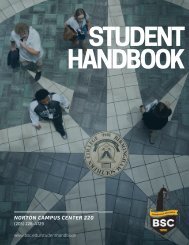Create successful ePaper yourself
Turn your PDF publications into a flip-book with our unique Google optimized e-Paper software.
PROFESSIONAL EXPECTIONS<br />
A successful theatre requires clear communication. The Theatre Hierarchy Chart tells you who to report to for questions,<br />
supervision, and assistance based on your role within the Theatre Program or in a specific production. Actors &<br />
technicians are expected to conduct themselves in a professional manner consistent with best practices for theatre<br />
production. These include:<br />
REHEARSAL<br />
1. Arriving at rehearsals 10 – 15 minutes early so you are ready to begin at the designated time. Call time is GO TIME,<br />
not “walking in the door time.”<br />
2. Upon arrival to each technical/dress rehearsal, initial the sign-in sheet on the call board by the Green Room. Being<br />
prepared for rehearsal, which includes:<br />
a. Conducting script and character analysis<br />
b. Learning lines and blocking<br />
c. Being off book on or before the assigned date<br />
d. Being ready to take notes as necessary – bring your pencil, script, notebooks, etc. as required by your<br />
position.<br />
e. Warming up before rehearsal physically, mentally, and emotionally.<br />
3. Wear shoes and clothing appropriate to your movements and actions during rehearsal.<br />
4. Be prepared to apply all notes at the next rehearsal.<br />
5. During notes, listen attentively, accept notes graciously, and only ask questions that serve the group. Questions<br />
about individual work, objections to a note, or other discussion should be saved for another time. Defensiveness is<br />
not productive. Notes are how we improve.<br />
6. Do not give notes, line readings, or prompts to another actor, director, or technician. Only the director, technical<br />
director, designers, and stage manager should give notes.<br />
7. If you need to leave the building during rehearsals or performances, you must notify and obtain permission from the<br />
stage manager.<br />
8. Cell phones are to be used only for urgent or professional communication. If you have questions about what<br />
qualifies, see your faculty/staff supervisor for clarification.<br />
9. Food and drinks not required for the production should only be consumed during breaks and outside of the theatre<br />
space. Only water may be kept backstage for breaks<br />
COSTUME FITTINGS<br />
1. Arrive to costume fittings on time, showered and dressed in the appropriate undergarments.


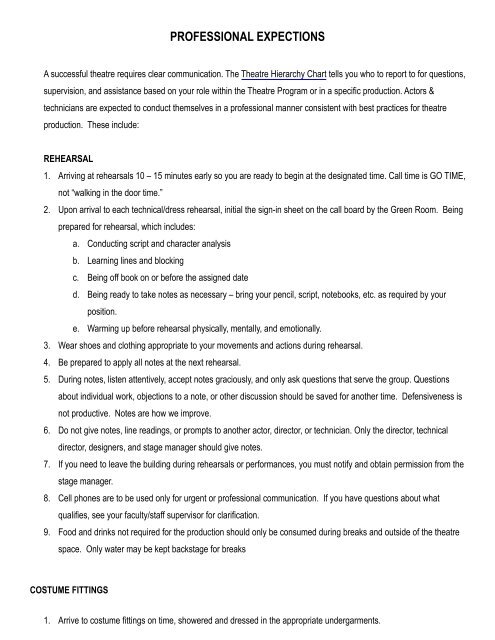

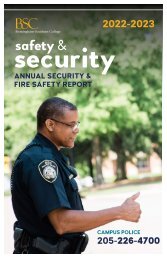

![2023-2024 BSC Catalog Updated_UG ONLY_FINAL[82]](https://img.yumpu.com/68414854/1/178x260/2023-2024-bsc-catalog-updated-ug-only-final82.jpg?quality=85)



